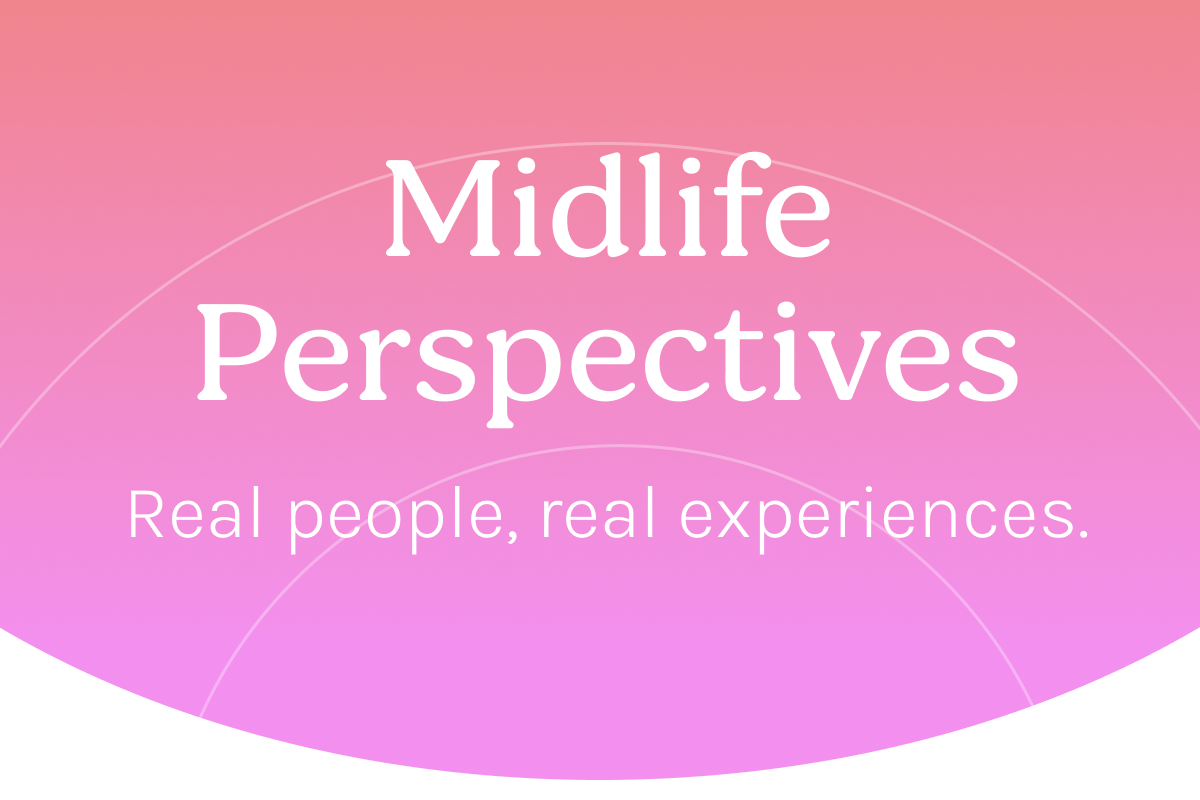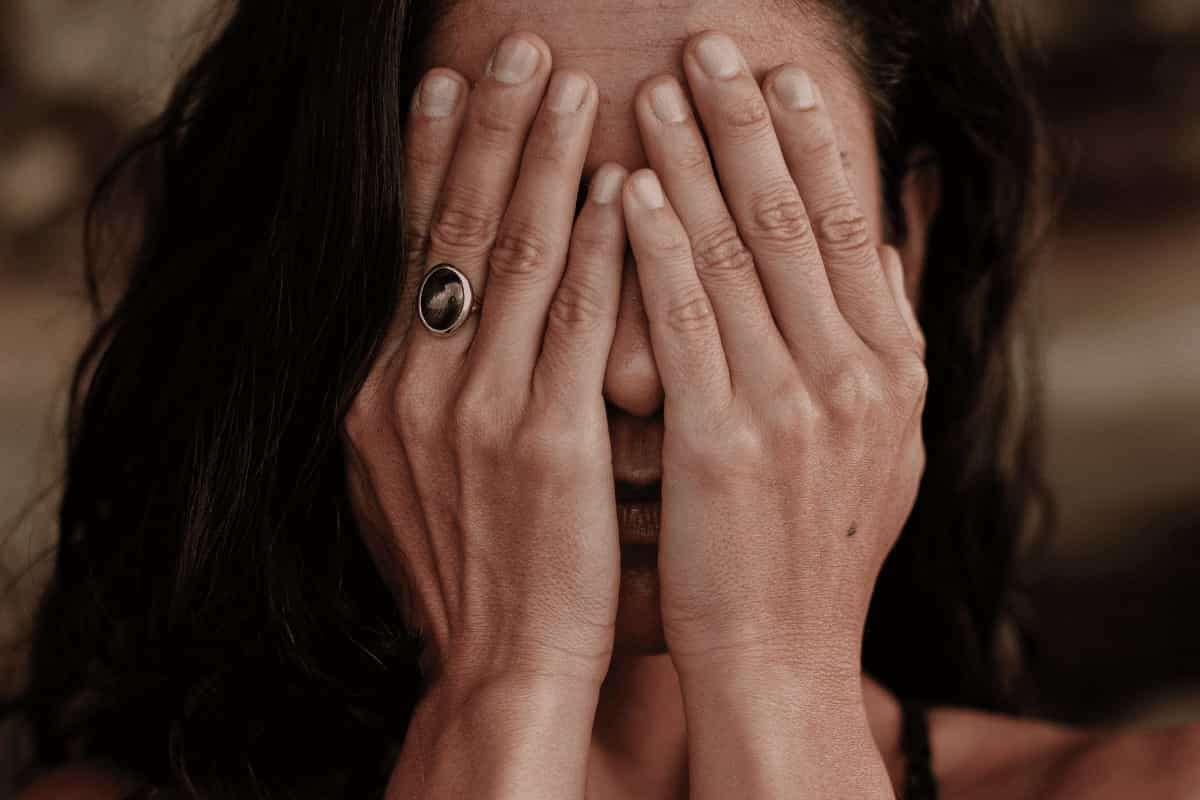Laura, 51. It gets better.

Want to share your own story? Send a chat message or email annemarie@midday.health.
Your privacy is important to us—we are happy to keep you anonymous.
Menopause hit hard with mood changes
It’s tricky because I have stroke risk, so I can’t take anything. So the mood part was really the super challenging part for me, the other symptoms are kind of manageable.
I would get almost manic anger and frustration. It happened in a predictable pattern, but I didn’t identify that it was a predictable pattern.
I was another person. I was completely irrational, certain things would set me off completely. Then right afterward, it would very quickly spiral. So I would act out in a negative way because of the anger and rage and frustration, then immediately swing around to feeling terrible and super depressed about it. And the depression didn’t always pop right back up and get better.
My depression got really bad, scary. I took time off from work—I was very fortunate to have an employer that gave me a leave of absence for mental health, no questions asked.
That gave me time to figure it out and I feel really fortunate to have had that.
It took a lot of work to get to where I could separate out and identify what was my hormones and what was real.
Tracking my symptoms allowed me to cope
I tried lots of different antidepressants and antianxiety medications, read about anxiety and anger and all of that helped a little bit. But it was about tracking it and understanding, “This is really happening and it’s happening in a predictable pattern.” It’s not me. There’s nothing wrong with me that I need to take more meds or get more therapy.
Unfortunately, as menopause has gotten closer my cycle is not as reliable. So while it was very manageable for a while, I have a hard time separating it out again. Is it my hormones? My job? COVID?
It gets better
It’s hard to look back on it because I can read my journals and know that it was really bad and it was really happening. I think a lot of it was related to hormones, and also related to the fact that I was blaming myself and it caused a whole spiral. Then, of course, COVID and the stressful job made it worse.
I wish I could tell myself five years ago that it will get better. That’s such an oversimplified thing that people throw around—but it does get better and even understanding it makes it better, even if you can’t fix it. Just understanding it helped, like that one doctor said. Just write it down.
Knowledge is power
The more you understand and know about what’s going on, it will actually make you feel better and not hopeless. I avoided reading about menopause and hormonal stuff for a while because it seems so frustrating. But empowering yourself with knowledge actually does make you feel better—being able to name it and acknowledge it actually does make it better. It’s not something I would have believed, but it is actually true now that I’ve done it.
My experience has changed how I talk to my children
I have daughters who are 15 and 21. So they’re at different parts of their puberty journey, and they’re struggling with different things. Now I have a whole different approach to talking to them about it.
I say, “Look, this is a stage of life when your hormones are going to be changing, you can’t predict when things are going to be weird and you don’t understand your feelings. I want you to tell somebody not just that you’re having feelings but that you don’t understand them. Instead of blaming yourself for being irrational, super angry, depressed—it might be something in your body that could be at least compensated for.”
So I’m very much about talking to them about it with puberty, which I hope has helped them a bit.
It’s still important to have fun
I’m fortunate that my husband is a very empathetic person, very patient, and he decided that we just need to have more fun. I think that’s a huge thing, just an enormous coping mechanism. We still do stuff like grocery shop together, which is ridiculous because we’ve been married 23 years, but I think it’s little stuff like that that is actually important. Having a date night, that’s a big deal.
We like to go out and do a little sightseeing, explore new places—even locally. We’re very lucky to live near the beach. My husband likes to fish. I do not, but I do enjoy the boat. I opened myself up to that because I never used to do it, but I thought maybe I just needed to get out in nature more.
Sometimes your mother was right
I am surprised by how true some of the things are that my mother said—about how your priorities change and things that get you agitated change. I think in midlife I just have a bit of a different perspective and value relationships more than arguments. I also like having experience to look back on. I like that people respect your experience.
I’m excited for my second chapter
I know I’m going to have a post-retirement career of some kind. I’m looking forward to seeing where I end up and what I end up doing—likewise, what my husband ends up doing. I think we’re going to do something cool, and we talk about it quite a bit. We’re looking forward to that.
We also want to move, live somewhere where we can walk to the water. So I’m looking forward to us getting to a place where we can move somewhere like that.
I’m excited to see how my kids turn out—what they get up to. They surprise us all the time, so I’m looking forward to that. I do feel like we’re going to have a second chapter. It’s going to be cool and fun and I’m looking forward to seeing what happens.
Sign up for more unique women’s health content
By submitting this form, you agree to the Lisa Health Privacy Policy and Terms of Use


